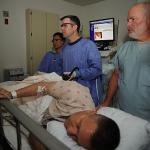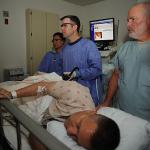Artificial intelligence (AI) is all the rage in many aspects of our lives, from composing students' essays and manufacturing cars to designing new fashions, and the number of its applications is growing by the day.
artificial intelligence
Psychiatry was one of my early rotations as a third-year medical student just beginning clinical training. After years of exposure to science in the classroom and laboratories, its imprecision was unsettling.
During my lifetime, there have been several seminal breakthroughs in medicine that greatly changed our ability to prevent or treat disease. Part 1, below, describes several of them. I have a good idea of what some of the next ones will be.
Hardly a day passes without a report of some new, startling application of Artificial Intelligence (AI), the quest to build machines that can reason, learn, and act intelligently.
Hardly a day passes without a report of some new, startling application of Artificial Intelligence.
Artificial Intelligence (AI) is increasingly becoming the focus of societal debate and discussion following the emergence last November of ChatGPT (Chat Generative Pretrained Transformer) – a “chatbo
We have written about peer review at ACSH; here is a slightly different take from Marginal Revolution.
As with many things digital, the EU has led the way, in privacy protections, in trying to define the ethics of artificial intelligence, and now trying to define what is high-risk.
As I have suggested in the past, humans are held responsible for the results of humans using automated systems.
Truthfully, writing about science and health often involves more reading than writing. With the infodemic on the COVID-19 pandemic underway now for ten months, there are an enormous number of articles to sift through.












